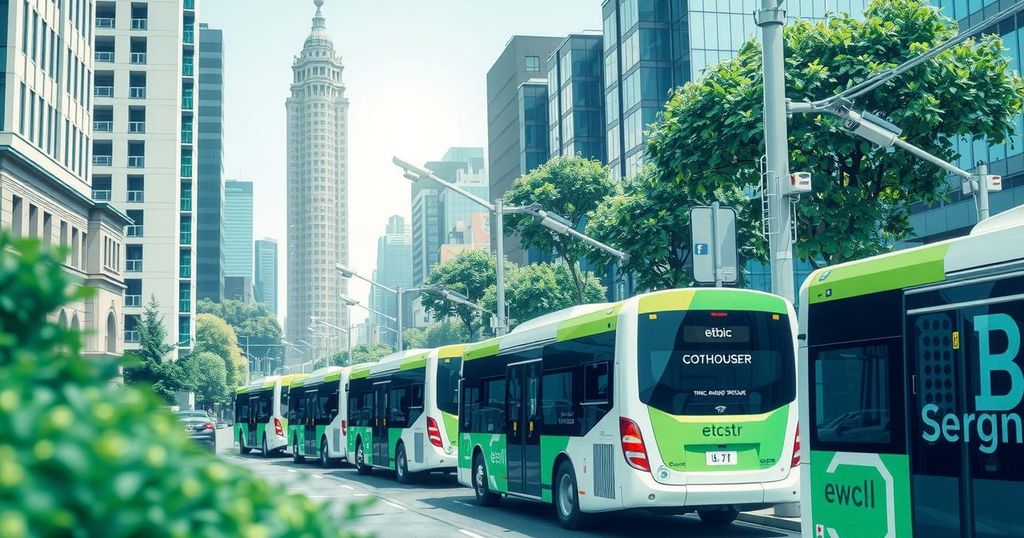São Paulo Mayor Ricardo Nunes Highlights Trade Opportunities with China Amid U.S.-China Tensions

Amid escalating U.S.-China trade tensions, São Paulo Mayor Ricardo Nunes sees opportunities for Brazil in partnering with China, particularly in clean energy and urban development. The city aims to electrify its bus fleet by 2032 and has already installed thousands of AI-powered surveillance cameras, showing a commitment to leveraging Chinese technology. Plans are also underway to secure funds for electric bus purchases through a deal with the Bank of China.
Ricardo Nunes, the mayor of São Paulo, Brazil, has pointed to a silver lining in the ongoing trade tensions between the United States and China. At a recent economic summit in Shanghai, Nunes remarked that the friction between the world’s two largest economies has conveniently opened up pathways for Brazil to enhance its collaboration with China in several sectors, including clean energy, public transit, and urban development.
During his conversation with Caixin, Nunes elaborated on how Brazil intends to seize these opportunities. The escalating tariffs and trade disputes between Washington and Beijing have left noticeable gaps in global trade that Brazil is ready to fill, particularly through partnerships with Chinese firms. Nunes highlighted São Paulo’s ambitious goal to electrify its entire bus fleet by 2032, with the city collaborating with BYD, a prominent Chinese electric vehicle manufacturer, and seeking substantial financial assistance from China.
Moreover, São Paulo has made significant strides in utilizing advanced technology as part of its urban development initiatives. The city has already installed over 25,000 AI-driven surveillance cameras from Chinese companies, including Hangzhou Hikvision and Zhejiang Dahua. These efforts have proven effective, as they have aided in the capture of more than 1,000 fugitives within just six months, showcasing the potential of technological investments in enhancing public safety.
Through its existing partnership with the Bank of China, São Paulo aims to negotiate a credit line of 100 million yuan, around $14 million, to facilitate the acquisition of electric buses. This funding is pivotal in the city’s efforts to electrify public transportation, thereby aligning with global green initiatives while strengthening ties with Chinese counterparts.
Overall, the current trade dynamics between China and the U.S. not only present challenges but also new avenues for growth and collaboration for Brazil. São Paulo, under Mayor Nunes’s leadership, appears poised to capitalize on these opportunities to foster more robust economic relationships and enhance its urban infrastructure.
In conclusion, the trade tensions between the U.S. and China have paradoxically opened opportunities for Brazil, particularly in São Paulo. Mayor Ricardo Nunes has articulated a vision where Brazil can partner with Chinese firms to advance in clean energy and urban development. With significant plans for electrifying the bus fleet and enhancing public safety through technology, São Paulo is clearly aiming to fill gaps left by the trade war, creating a promising future.
Original Source: www.caixinglobal.com




